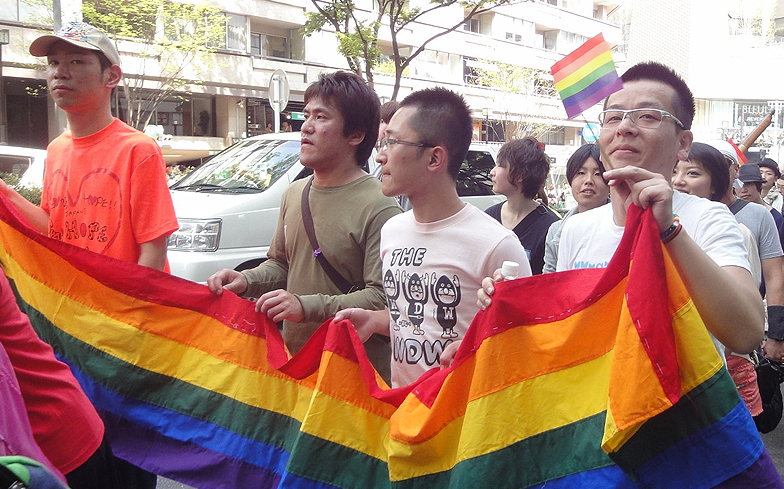
The couples are arguing that the government’s stance on same-sex marriage is unconstitutional.
Ten same-sex couples from Japan are suing the government for not recognising same-sex marriages. The Japan Times reports that the couples are seeking some form of compensation and that their claims will be filed in courts around the country, like in Tokyo or Nagoya.
Article 24 of the Japanese constitution reads: “Marriage shall be based only on the mutual consent of both sexes.” Currently, the Japanese government are interpreting that to only be between heterosexual couples, but lawyers and some legal scholars argue that the wording of the constitution does not discriminate against same-sex couples.
The government is also claiming that marriage should remain between a man and a woman as the terms “husband and wife” are used in civil and family registration law.
One of the lawyers for the couples, Shinya Maezono said: “We want our call to be widespread so that the freedom to marry will be recognized for everyone.”
Although same-sex marriage isn’t legal in Japan, some of the country’s cities are still legally recognising same-sex couples. Last year, Sapporo started handing out certificates called ‘partnership vows’.
While the certificates don’t offer the same legal rights as marriage, they do allow partners to become recipients of each other’s life insurance and entitle them to family benefits such as discounts on mobile phone services.
One 32-year-old woman who got one of the partnership vow certificates said: “I was finally able to do it. It may be self-satisfaction but I want other people to use the system without caring what people around them think, because they can become happy.”
However, Mio Sugita, a Japanese MP from the Liberal Democratic Party attracted a lot of controversy this year after she accused members of the LGBTQ community of being “unproductive” due to the fact that they don’t bear children.
She then went on to say that the social acceptance of homosexuality could cause greater “unhappiness” that would lead to societal collapse if it was “deprived of common sense and normalcy.”
Taiga Ishikawa, Japan’s first openly gay lawmaker hit back at Sugita’s comments, saying: “Homosexuality is not the definition of unhappiness. It’s discriminatory remarks like Sugita’s that make us unhappy.”
However, Sugita’s comments were not criticised by the party. Toshihiro Nikai, the party’s Secretary General told reporters: “Different people have different views, let alone their political positions.”




